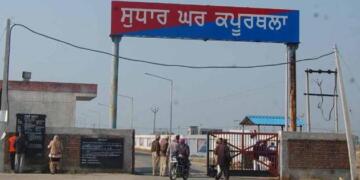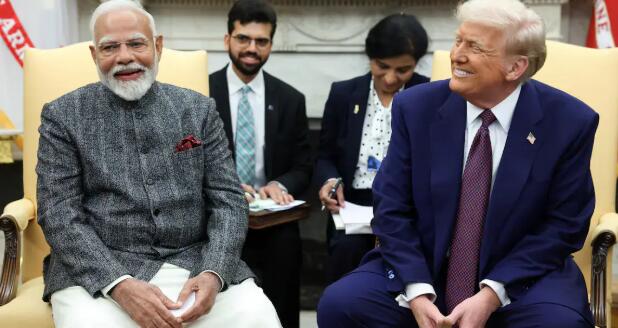In their first official conversation since Donald Trump returned to the White House, Prime Minister Narendra Modi and the U.S. President spoke for 35 minutes on Tuesday, reaffirming their commitment to strengthening the India-U.S. partnership.
The call covered familiar ground—regional security, counterterrorism, and future cooperation—but the tone and timing of the exchange offered a clear signal: the two countries are aligning closely on major issues, even if they’re not announcing big breakthroughs just yet.
One of the most striking parts of the call came from Prime Minister Modi’s comments on terrorism. He reportedly told President Trump that India no longer sees terrorism as a proxy war, but as “an actual war.” That wording wasn’t accidental—it reflects India’s increasingly tough stance on national security, especially after recent attacks like the one in Pahalgam, which killed several Indian security personnel. President Trump expressed condolences and support, and both sides discussed the broader situation, including a ceasefire arrangement referred to as “Operation Sindoor.”
What PM Modi Told Trump
During his telephonic conversation with Trump, PM Modi said that soon after the Pahalgam terror attack, India had conveyed its firm resolve to act against terrorism to the entire world.
Prime Minister Modi said that on the night of May 6-7, India targeted only terrorist hideouts in Pakistan and Pakistan-occupied Kashmir.
India’s action was measured, precise, and non-escalatory, PM Modi told Trump.
At the same time, India had also made it clear that it would respond to Pakistan’s bullets with shells.
The ceasefire or military de-escalation happened only through existing military-to-military communication channels, and at Pakistan’s own request.
PM Modi emphasised that India has never accepted, does not accept, and will never accept mediation.
There is complete political consensus on this issue within India, he told Trump.
Prime Minister Modi also stated that India no longer considers terrorism a proxy war, but a full-scale war, and that ‘Operation Sindoor’ is still ongoing.
He further reiterated that India had made it clear that any gunfire from Pakistan would be met with stronger retaliation from India.
In response, Trump expressed support for India’s fight against terrorism.
Trump also asked Prime Minister Modi if he could stop over in the US on his way back from Canada. However, Prime Minister Modi expressed his inability to do so due to his prior commitments.
This conversation shows just how central security has become in the India-U.S. relationship. For both leaders, counterterrorism is more than a talking point—it’s a shared priority. India’s choice to use stronger language also sends a message to the international community that it wants its security concerns to be taken seriously.
While there weren’t any new trade deals or big policy announcements, both leaders agreed to keep working closely on defense, energy, and advanced technology. The focus now seems to be on building long-term trust and cooperation, rather than rushing into flashy agreements. Given the growing tensions in the Indo-Pacific and global uncertainty, this steady approach may prove more valuable than short-term headlines.
Modi also made India’s diplomatic position clear when it comes to Pakistan. According to official sources, he told President Trump that India won’t accept any third-party mediation in its disputes with its neighbor. This has been a long-standing position for New Delhi, and the fact that Modi raised it directly suggests India wants to ensure there’s no misunderstanding as Trump resumes office. It’s also a reminder that while India values its partnership with the U.S., it intends to maintain full control over how it handles regional issues.
President Trump invited Modi to visit the U.S. after the G7 summit in Canada, but Modi declined, citing prior commitments. Indian officials were quick to clarify that this wasn’t a political move—just a scheduling issue. Still, the decision reflects India’s effort to engage with the U.S. as an equal partner, not simply as a guest responding to an invitation. It’s a small but telling sign of how confident and self-assured India has become in its foreign policy.
In the end, the Modi-Trump phone call wasn’t about making news—it was about reinforcing the foundation of a partnership that’s increasingly built on shared interests and mutual respect. As both countries deal with global instability and regional challenges, this kind of quiet but clear communication may be what keeps the relationship strong.























